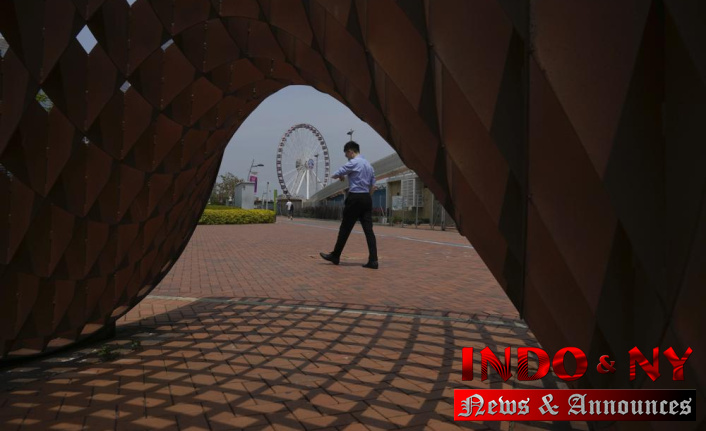On Thursday, Hong Kong reopened its beaches and pools as a result of a relaxation in COVID-19 restrictions. Meanwhile, Beijing began to ease quarantine rules for foreigners arriving into China's capital.
Hong Kong had previously closed its water sports venues due to an outbreak of the transmissible Omicron variant. However, it has continued to relax restrictions as new cases fall. The death toll from COVID-19 has fallen from an average of 300 per day in March, to zero these days.
Restaurants can now seat eight people at a table, up from four before. Outdoor exercise is also permitted. Masks are no longer required for those who participate in group sporting events.
William So, assistant general manger of London Restaurant, which is a long-standing destination for traditional dimsum, said, "We're looking forward Mother's Day and being able up to eight people sit at a table."
So said, while steaming bamboo baskets filled with savory dumplings were pushed through the packed dining area. "Business will increase, three generations of a household can sit down and eat together." He said that bookings have already increased by more than twofold since the relaxed seating policy was introduced.
Another round of easing will begin on May 19, when bars, clubs and restaurants in the southern Chinese capital will be allowed to reopen.
China's hardline "zero COVID" approach has not changed, but it has placed less restrictions on capital than other cities like Shanghai, where many were under tight lockdown.
Beijing now requires international arrivals to quarantine in a hotel for 10 nights, then another week of isolation at home.
The previous rules required 21 days in isolation, with at least 14 days at a hotel. After that, seven days of regular reporting was required.
The rule change will have limited practical impact as there are only a few daily international flights to Beijing. It does, however, symbolically show that there is a willingness to compromise and accept a less intrusive, but economically more damaging, policy.
The capital is not taking any chances. On Wednesday, 60 subway stations were closed, more than 10% of its extensive system.
Takeout is not allowed in bars or restaurants. Gyms are closed, and classes are suspended for at most a week. Major tourist attractions in the city, such as the Forbidden Kingdom and Beijing Zoo, have shut down their indoor exhibition halls, and are now only partially operational.
The COVID-19 risk levels in each district have been classified and residents of the highest category are prohibited from leaving the city. A few cases have been identified in isolated communities.
As authorities attempt to identify and isolate cases, all residents will be required to take three virus tests during the week. To enter most public areas, you must have a negative result from a virus test within 48 hours.
Beijing reported only 50 new cases on Thursday, eight of which were asymptomatic.
Shanghai saw an additional drop of 4,651 cases. This includes all but 261 asymptomatic cases and 13 deaths. China's largest city saw a peak of 27,605 cases per day on April 13.
There have been questions about the low death rate in spite of the outbreak of more that 400,000 cases in the city, which is also home to China's largest port and main stock exchange.











